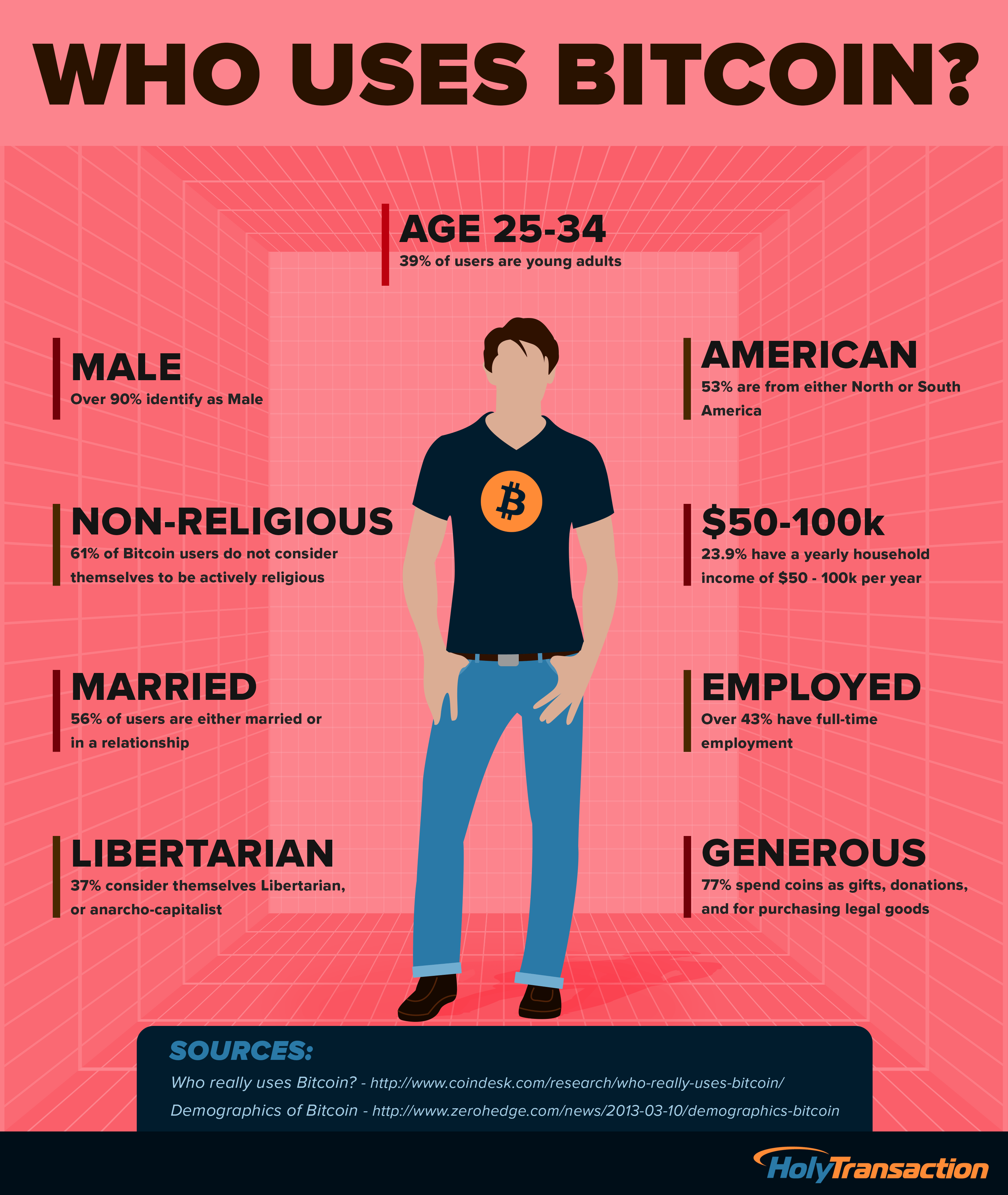We’ve all heard of Bitcoin, right? But, with all the fuss around it, do we really know who actually uses it?
There are hundreds of thousands of Bitcoin transactions every day, and in Japan 260,000 more stores are now starting to accept Bitcoin. It’s been next year’s biggest thing since 2013, and as each year passes the only way in which Bitcoin has affected my life is that it appears in more and more news articles about it being next year’s biggest thing.
This year alone there have been a couple of real corkers. There was a kid in the US who started trading in Bitcoin when we was 12; he dropped out of school and now he’s a millionaire. We’re only just over halfway through this year and already startups have raised $1.3 billion in “initial coin offerings” (crowdfunding for cryptocurrencies).
And just to keep things spicy, the share price took a real dip recently, but it will rise again because the thing which makes it work that no one understands is going to be fixed. Phew!
If you don’t know what Bitcoin is there’s a decent overview and extra reading here. That being said, who is actually using Bitcoin?
Who are Bitcoin Users?
A 2017 study by Cambridge University estimated the number of cryptocurrency users to be somewhere between 2.9 and 5.8 million with between 5.8 and 11.5 million active wallets. In March 2017 Bitcoin had a 72% market share with other types of cryptocurrency like Ethereum and Litecoin making up the rest.
Read More: Blockchain-Based Content Distribution Platform Takes-On Amazon With its Own CryptoCurrency
Because of privacy concerns, one way to find out who Bitcoin users are is to ask and hope they’ll tell you. Of course someone else has been curious enough to ask Reddit, and a few people answered with responses like “White, single, males.”
But some of the answers were a little more insightful. “I use it to store what little wealth I have left after various governments around the world stole the rest from me,” commented one user who seemed to follow the prevailing sentiment.
For the most part these people say they are relatively young and don’t like handing out the kind of information most banks require as “billing details” as they are deeply untrustworthy of banks, governments and the future.
Read More: Why Current Cybersecurity Doesn’t Work and Why Blockchain Should Take Its Place
But these are the people who for the most part, spoke of using Bitcoin as a consumer (i.e. they buy products online with Bitcoin). And, revealingly, one of the highest-rated answers was the following:
“Most people buying bitcoin are buying it to hold as a speculation for the future.Bitcoin dosnt [sic] offer too much utility to the services we already have in the 1st world, so there is usually not much advantage in spending it. Some people love spending it because its [sic] new or offers a feeling of empowerment. The only times I have used bitcoin to buy something was when I had a smoking deal with bitcoin or when it was the only accepted payment (recalescent physical bitcoin).”
So, according to a select few Reddit users, Bitcoin is mostly used for not spending? Interesting. And, again, difficult to prove. But it does seem to stack up based on a survey by University of Illinois who used Bitcoin.org, Reddit, and Twitter to gather 1,200 respondents.
The average Bitcoin user age came out at 33, and the wealth curve of Bitcoin users was the same as any normal wealth curve: there’s a steep increased until middle-age when the increase relents. The survey, then, seems to dilute the traditional view of Bitcoiners.
I should point out that the survey was done in the summer of 2014. So it’s out of date, but let’s place it in context. It was the year after the then largest Bitcoin exchange, Mt. Gox, collapsed and Ross Ulbricht, The Silk Road’s founder, was banged up for life. Perhaps for those reasons it was just after Bitcoin’s record high value $1,216 in late 2013, after which it dipped only to be surpassed this year.
CoinDesk did a more comprehensive survey on Bitcoin users in June, 2015, but unless you’ve got $100 (0.03869 Bitcoin) to spend on a 40+ page pdf, the people at HolyTransaction made an infographic based on CoinDesk’s report, along with data from ZeroHedge, which can give you a better “picture.”
For a more visual representation, check out the infographic by Luxembourg-based HolyTransaction, whose mission is to make the most popular digital currencies accessible, storable, tradable, and secure for every user in its community, all from one single account.
The below infographic was compiled from data ranging from 2013-2015 from CoinDesk and ZeroHedge, which corroborates previous studies mentioned in this article.

Infographic by HolyTransaction












